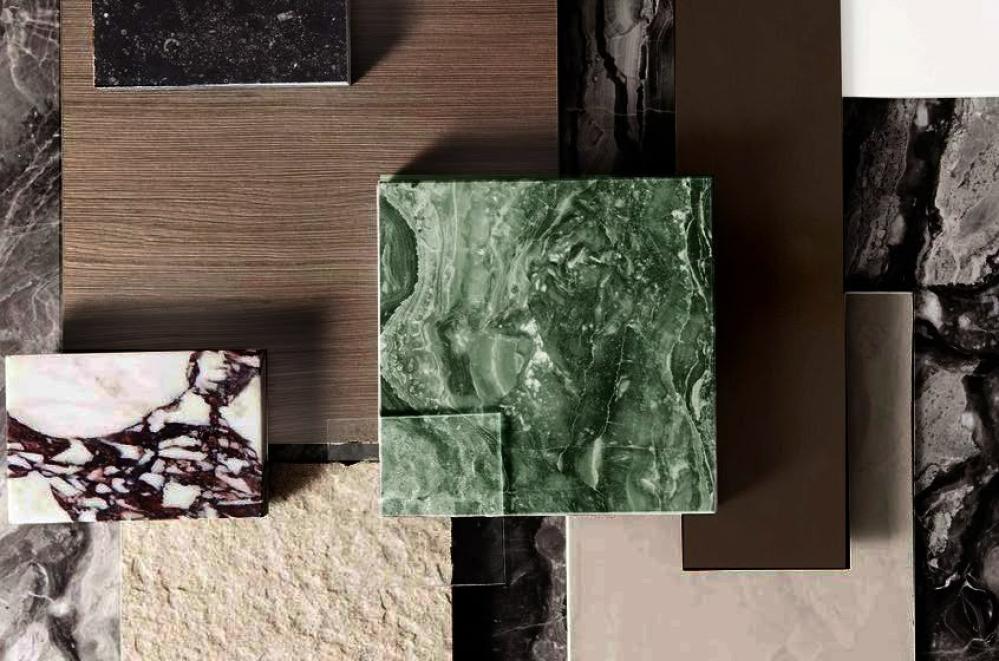Marble alternatives have become a popular choice in bathroom design, offering a sleek, modern look at a lower cost than natural marble. But does marble alternatives have the features that make them the perfect choice for your bathroom?
Today, we will delve into the world of marble alternatives, and answer frequently asked questions about their uses in bathrooms, such as: Is marble alternatives waterproof? What are the disadvantages of marble alternatives in bathrooms? And what are their advantages over natural marble?
Let's begin our journey to explore the alternative world of marble.
What is the alternative to marble?
Marble alternative is an engineered material that mimics the appearance and properties of natural marble.
It is made from a variety of materials such as PVC, ceramic, concrete, acrylic, and more.
There are many interior decorations in which marble alternative can be used, such as wall cladding or even flooring.
Marble alternative offers a wide range of colors and patterns, allowing you to choose the design that suits your taste and bathroom decor.
What are the advantages and disadvantages of marble alternative?
Features:
- Cost: Marble alternatives are usually less expensive than natural marble, making them an attractive option for those on a budget.
- Durability: Marble alternative is highly durable and resistant to scratches and stains, making it ideal for use in high-traffic areas such as bathrooms.
- Variety: Marble alternative is available in a wide range of colors, patterns, and designs, allowing you to choose the design that suits your taste and bathroom decor.
- Easy to clean and maintain: Marble alternative can be easily cleaned with water and mild detergents, and requires no special maintenance.
- Stain Resistance: Most marble alternatives are stain resistant, making them easy to clean and maintain.
Disadvantages:
- Appearance: Although marble alternative mimics the look of natural marble, it may lack the depth and natural beauty of real marble.
- Heat: Some types of marble alternative may be affected by extreme heat, which may cause them to warp or change color.
- Scratches: Marble alternative can easily get scratched, especially if it is made of soft materials like acrylic.
- Thickness: Some types of marble substitute may be thinner than natural marble, making them less durable in some cases.
So it depends on which type you choose, so special types have been developed to suit different uses.
Below we will discuss whether there is a type of marble alternative that is suitable for use in bathrooms.
Is marble alternative suitable for bathrooms?
What are the characteristics of materials that can be used in bathroom decorations?
Moisture resistant, scratch resistant, non-slip, etc.
These qualities, or let's call them criteria, are what determine whether a material is suitable for use in bathrooms or not.
Therefore, we can say: Yes, marble alternative is very suitable for use in bathrooms.
It is moisture resistant, easy to clean, and available in a variety of designs to suit all tastes.
However, you should choose a good quality marble alternative and make sure it is installed properly to get the best results.
What are the disadvantages of marble alternative in the bathroom?
- Appearance: Some types of marble alternative may lack the natural appearance of real marble, which can affect the overall look of the bathroom.
- Scratches: Marble alternative can easily scratch, especially when used in bathrooms that receive heavy use.
- Expansion and Contraction: Some types of marble alternative may be affected by changes in temperature and humidity, which may lead to expansion, contraction and surface cracking.
Is marble alternative water resistant?
Yes, most types of marble alternative are water resistant, making them ideal for use in bathrooms. However, you must ensure that you choose a good quality marble alternative, and ensure that it is installed properly to prevent water leakage.
Natural Marble vs. Marble Alternative: Which is Better for Your Bathroom?
The choice between natural marble and marble substitute depends on several factors, including:
- Budget: If you are on a tight budget, marble alternative is the best option.
- Appearance: If you are looking for a luxurious, natural look, natural marble is the way to go.
- Usage: If the bathroom is used intensively, a marble alternative may be the most practical option due to its ease of maintenance.
- Overall style of the bathroom: Your choice should fit in with the overall style of the bathroom, whether modern or classic.
This makes marble alternative suitable in most cases, as it will give you an impression similar to the impression of real marble in terms of appearance, with similar durability as well, at a lower cost.
Therefore, we advise you to browse the many options that Al-Ghamlas provides you with from high-quality marble alternatives , and browse the elegant colors and designs that suit your high taste.
If you are looking for a durable, easy-to-clean, and stylish material, marble alternatives are a good choice. However, if you are looking for a unique, natural look, you may want to consider natural marble or other materials such as natural stone.
Tips for choosing a marble alternative:
- Choose good quality: Make sure to buy marble alternative from a reliable supplier, and compare different types before making a decision.
- Choose the right thickness: Choose the right thickness for your marble alternative, especially if you are using it in areas that will be exposed to a lot of pressure.
- Consult the Experts: Consult an engineer or professional contractor for advice on selecting and installing a marble alternative.

